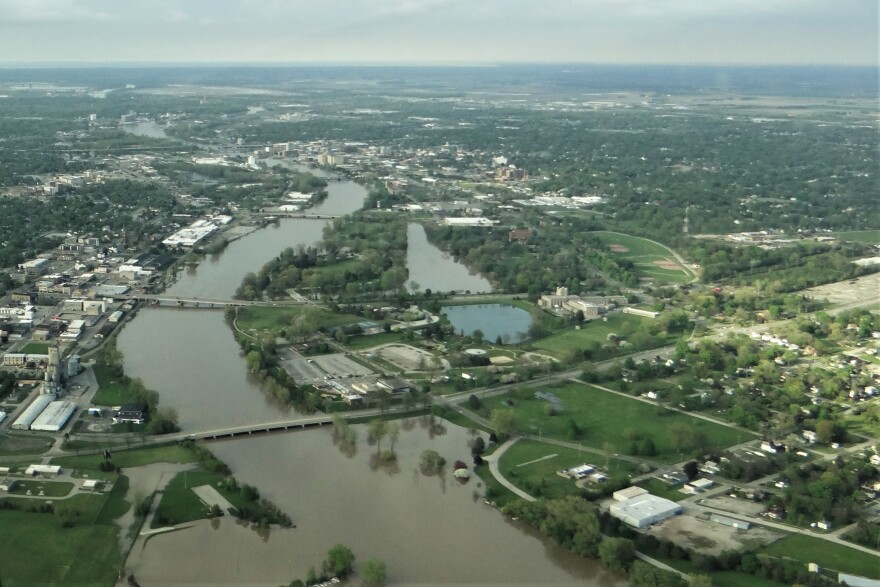
The two dams that broke near Midland caused a massive flood that swept away bridges, roads, and damaged a lot of property. Because Midland is home to Dow’s original chemical complex, a lot of people were concerned about hazardous waste or waste in ponds at Dow.
But then people got to thinking, what about what's in the plant, the products, and the chemicals that go into the products? And for that matter, do we know what chemicals are at any manufacturer whether chemical or otherwise?”
You can find out what hazardous waste is at any industrial site if it stores enough to be regulated. In fact, it’s online.
It’s not as easy to find out what hazardous chemicals are stored at a plant. Those chemicals could be ingredients for a product or something as simple as lawn chemicals at a garden center.
So where do you start?
“I would reach out to your local Emergency Planning Committee to access the information for chemical storage for that facility," said Michael Young at the Michigan Department of Environment Great Lakes and Energy.
He keeps track of something called the Emergency Planning and Community Right to Know Act.
“If it's a regulated facility in the community, there will be information on what types of materials are being stored at that facility.,” he said.

Not just anyone can take a look at that report. Each county has an Emergency Planning Committee which handles requests for this information. Typically, you have to be a resident of the county who could be affected by chemical releases or a fire at a site in order to see the report. You also have to show an ID. In most places, you can look at the report, but you can’t make a copy of it.
Another place where you might get that information is from your local fire department.
But, if you’re from another county or another state, you can only access that information through a Freedom of Information Act request with the state. But, Michael Young says because of homeland security issues you might not get the entire list of all the chemicals stored at the industrial site. And Young says anything considered proprietary can also be withheld.
MY: "So there may be, you know, products, materials that they're manufacturing at that facility that we want to protect, any kind of trade secrets, that sort of thing that a facility may have.”
LG: “You wonder where the line is between proprietary information, homeland security, and the public's right to know. Where do you draw that line?”
MY: “I don't know if I can answer that question. You know, I'm just thinking that, you know, the information we want to be good stewards of that information, even through FOIA requests.”
One state treats things differently. New Jersey makes all that stored chemical information available online. It does redact information about proprietary chemicals.
Representative Jim Ellison, a Democrat, is one of the driving forces behind legislation aimed at cracking down on certain polluters.
He says getting the information online might be something for the State of Michigan to consider, but he would still want some restrictions.
JE: “There is some validity in the proprietary information stuff. You know, it's competitive information and they don't want to get it out. So there does need to be some kind of regulation on that.”
LG: “How do you balance those two needs, the people's right to know? Along with the proprietary information?”
JE: “You know, it is a tough balance. But, I think everybody has a right to know what's being stored in the chemical plant at the end of the street.”
Environmentalists argue that the chemicals stored at a facility “at the end of the street” can affect homes and property much farther away. That’s been proven again and again by pollutants from PFAS to dioxins to PCBs that have been dumped into the environment in Michigan over the decades.
Want to support reporting like this? Consider making a gift to Michigan Radio today.






